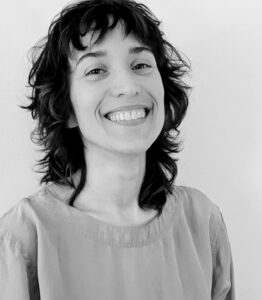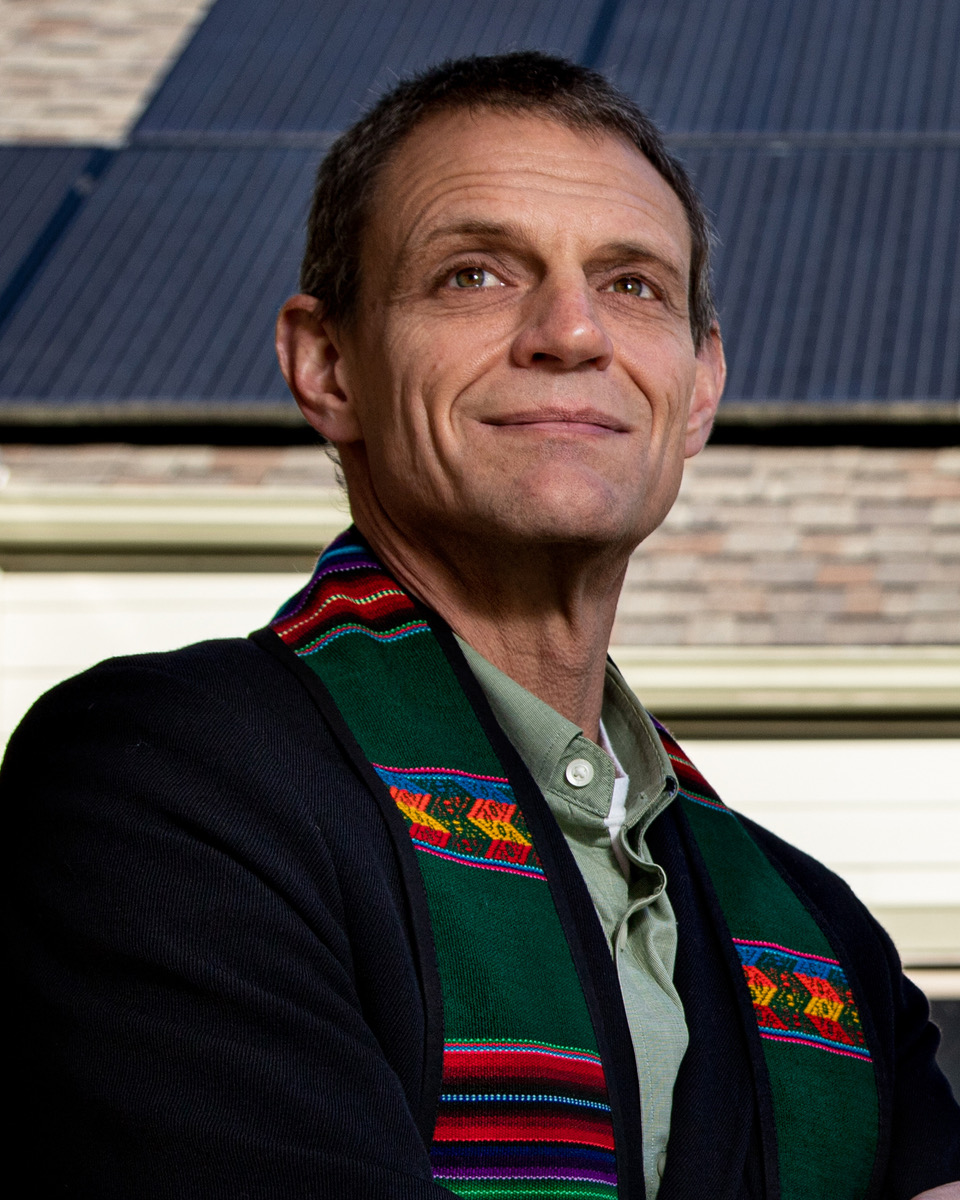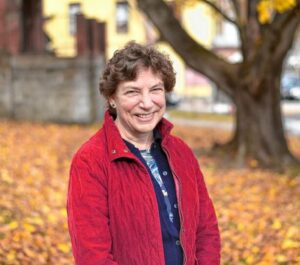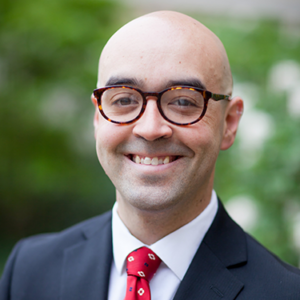
Spiritual Caregiving and Ecological Grief
Perspectives and Practices for Chaplains
Occurred on May 14, 2024
As the world we know continues to change, quickly and irrevocably, due to climate change, and as the losses from the changing climate continue to grow, many of us are experiencing profound grief — a normal and complex response to the magnitude of these crises. As more and more people understand their experiences as stemming from climate grief and climate anxiety, chaplains are encountering the spiritual challenge of responding to the myriad losses of living in a climate-changed world.
Though chaplains have always accompanied those who are grieving, the ambiguous losses and anticipatory grief brought on by climate change require new postures and practices. There is no doubt that the climate crises offer emerging possibilities and challenges for spiritual care, asking chaplains to transform and adapt old models of service and to allow their own climate grief to inform the care they offer. As chaplains and spiritual caregivers, how do we accompany those in our circles of care while also tending to our own ecological grief? How do we cultivate our own steadiness to offer space to those we accompany?
Thanks to those who joined us — chaplains, care givers, and faith leaders — as we explored these questions and offered practices for personal and community resilience in a climate-changed world.
View the conversation below, recorded on May 14, 2024:
Meet our Presenters
 Rabbi Ora Nitkin-Kaner (she/her) is the founder of Exploring Apocalypse, a non-denominational climate change chaplaincy practice. She holds space for her clients to explore the truth of this moment, and helps individuals experiencing climate anxiety and despair access ease and purpose as they engage with the climate crisis. Rabbi Ora lectures nationally on climate chaplaincy and leads trauma-informed workshops and support groups addressing the spiritual challenges and invitations of climate change.
Rabbi Ora Nitkin-Kaner (she/her) is the founder of Exploring Apocalypse, a non-denominational climate change chaplaincy practice. She holds space for her clients to explore the truth of this moment, and helps individuals experiencing climate anxiety and despair access ease and purpose as they engage with the climate crisis. Rabbi Ora lectures nationally on climate chaplaincy and leads trauma-informed workshops and support groups addressing the spiritual challenges and invitations of climate change.
Prior to becoming a climate change chaplain, Rabbi Ora served as rabbi of the Ann Arbor Reconstructionist Congregation (Ann Arbor MI), as an oncology and hospice chaplain at East Jefferson General Hospital (New Orleans LA), as program manager of Resurrection After Exoneration (New Orleans LA), and as a yoga and meditation teacher in Toronto and Philadelphia. A published liturgist, poet, and essayist, she lives in New Haven CT with her partner Asa and their dog Tuna.

Rev. Scott Hardin-Nieri is partner, dad, spiritual director, pastor, and sojourner. He is working with people and communities that are loving one another, their neighbors, and creation as the Director / Minister of Bethany Congregations, a ministry of the Bethany Fellows, and Co-Minister of Green Chalice of the Christian Church (Disciples of Christ). He is cofounder of Eco Grief Circles, supports a climate-informed Spiritual Direction group and generally seeks to build stories of resilience through intentional gratitude, honored grief, wise discernment, and embodied action.
Prior to living in North Carolina, Scott and his family served in the vulnerable cloud forest of Monteverde, Costa Rica, where he learned how to climb Fig Strangler trees, spot Two-toed Sloths, call like a Mot Mot, and listen to people and nature in a new way. Scott is an ordained pastor with the Christian Church (Disciples of Christ) and enjoys accompanying people during transformative experiences. Scott continues to become aware of the deep connections among pollution, poverty, violence, racism, oppression, climate change, eco anxiety, and the spiritual brokenness in the world. He hopes to foster curiosity, listen deeply, and tell stories of active hope and Good News in the midst of great challenges.
Meet our Hosts
 The Rev. Alison Cornish serves as the Coordinator of the Chaplaincy Initiative at the BTS Center. Alison spent the first half of her professional life working as an historic preservationist and architectural historian, primarily in New England and on Long Island, NY. After 20 years of work with museums, municipalities and nonprofit organizations, Alison attended Andover Newton Theological Seminary in response to a felt sense of call directly from Earth to address what is it that we are doing in our daily lives and habits that is destroying the planet that we inhabit. Following CPE, field education in interfaith work and parish ministry, and ordination in the Unitarian Universalist tradition, Alison served congregations on Long Island while also embarking on studies with the Buddhist teacher Joanna Macy and Dominican sister Miriam McGillis. Alison became a GreenFaith Fellow in 2013, and a Climate Reality Project presenter in 2017. She has served as Senior Director of Programs at Partners for Sacred Places, Executive Director of Pennsylvania Interfaith Power & Light, Director of Seminary and Congregational Initiatives at Interfaith Philadelphia, and as the Affiliated Community Minister at First Unitarian Church, Philadelphia. Alison’s facilitation work includes the Work That Reconnects, training-the-trainers for Civil Conversations, group practice of Nonviolent Communication, and the curriculum “Healthy Congregations.” A Program Consultant for the BTS Center since 2021, her work has focused on ecological and climate grief, religious imagination, and chaplaincy in a climate-changed world. Alison and her husband Pat live in Shelburne Falls, Massachusetts, on the unceded lands of the Nipmuc and Pocumtuc peoples, in the watershed of the Connecticut River. When not working, Alison can be found along, on, and in, a local natural body of water, currently the Deerfield River.
The Rev. Alison Cornish serves as the Coordinator of the Chaplaincy Initiative at the BTS Center. Alison spent the first half of her professional life working as an historic preservationist and architectural historian, primarily in New England and on Long Island, NY. After 20 years of work with museums, municipalities and nonprofit organizations, Alison attended Andover Newton Theological Seminary in response to a felt sense of call directly from Earth to address what is it that we are doing in our daily lives and habits that is destroying the planet that we inhabit. Following CPE, field education in interfaith work and parish ministry, and ordination in the Unitarian Universalist tradition, Alison served congregations on Long Island while also embarking on studies with the Buddhist teacher Joanna Macy and Dominican sister Miriam McGillis. Alison became a GreenFaith Fellow in 2013, and a Climate Reality Project presenter in 2017. She has served as Senior Director of Programs at Partners for Sacred Places, Executive Director of Pennsylvania Interfaith Power & Light, Director of Seminary and Congregational Initiatives at Interfaith Philadelphia, and as the Affiliated Community Minister at First Unitarian Church, Philadelphia. Alison’s facilitation work includes the Work That Reconnects, training-the-trainers for Civil Conversations, group practice of Nonviolent Communication, and the curriculum “Healthy Congregations.” A Program Consultant for the BTS Center since 2021, her work has focused on ecological and climate grief, religious imagination, and chaplaincy in a climate-changed world. Alison and her husband Pat live in Shelburne Falls, Massachusetts, on the unceded lands of the Nipmuc and Pocumtuc peoples, in the watershed of the Connecticut River. When not working, Alison can be found along, on, and in, a local natural body of water, currently the Deerfield River.
 Michael Skaggs, PhD is Director of Programs of the Chaplaincy Innovation Lab, overseeing the Lab’s education and networking initiatives as well as public relations. He is the host and producer of the Lab’s webinar series and editor of the Lab’s eBook series and newsletter.
Michael Skaggs, PhD is Director of Programs of the Chaplaincy Innovation Lab, overseeing the Lab’s education and networking initiatives as well as public relations. He is the host and producer of the Lab’s webinar series and editor of the Lab’s eBook series and newsletter.
Trained at the University of Notre Dame as a historian of American religion, Michael has a particular interest in interfaith dialogue and has served in innovative theological education programs. His work has appeared in Sociology of Religion, International Journal of Maritime History, American Catholic Studies, U.S. Catholic Historian, Books & Culture, and elsewhere. He previously served as Communications Director for Transforming Chaplaincy.
Meet The Chaplaincy Innovation Lab
 The Chaplaincy Innovation Lab (CIL), based at Brandeis University, launched in October 2018 to bring chaplains, theological educators, clinical educators and social scientists into conversation about the work of chaplaincy and spiritual care. As religious and spiritual life continues to change, the CIL sparks practical innovations that enable chaplains to nurture the spirits of those they serve and reduce human suffering.out the work of chaplaincy and spiritual care. As religious and spiritual life continues to change, the CIL sparks practical innovations that enable chaplains to nurture the spirits of those they serve and reduce human suffering.
The Chaplaincy Innovation Lab (CIL), based at Brandeis University, launched in October 2018 to bring chaplains, theological educators, clinical educators and social scientists into conversation about the work of chaplaincy and spiritual care. As religious and spiritual life continues to change, the CIL sparks practical innovations that enable chaplains to nurture the spirits of those they serve and reduce human suffering.out the work of chaplaincy and spiritual care. As religious and spiritual life continues to change, the CIL sparks practical innovations that enable chaplains to nurture the spirits of those they serve and reduce human suffering.
Meet The BTS Center
 With roots more than 200 years deep, The BTS Center is a private operating foundation in Portland, Maine, building on the legacy of the former Bangor Theological Seminary. Today The BTS Center seeks to catalyze spiritual imagination, with enduring wisdom, for transformative faith leadership. Guided by the vision of human hearts renewed, justice established, and creation restored, The BTS Center offers programs of spiritual and vocational formation — workshops and retreats, learning cohorts, courses, public conversations, and projects of applied research — that aim to cultivate and nurture spiritual leadership for a climate-changed world.
With roots more than 200 years deep, The BTS Center is a private operating foundation in Portland, Maine, building on the legacy of the former Bangor Theological Seminary. Today The BTS Center seeks to catalyze spiritual imagination, with enduring wisdom, for transformative faith leadership. Guided by the vision of human hearts renewed, justice established, and creation restored, The BTS Center offers programs of spiritual and vocational formation — workshops and retreats, learning cohorts, courses, public conversations, and projects of applied research — that aim to cultivate and nurture spiritual leadership for a climate-changed world.

